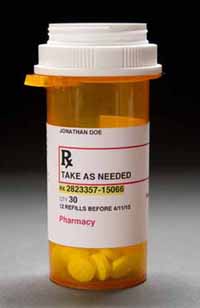 So you have a problem with control. Controlling your blood sugar levels, that is. Glyset, from pharmaceutical giant Pfizer, is a drug that may be helpful to you if your diabetes is non-insulin dependent.
So you have a problem with control. Controlling your blood sugar levels, that is. Glyset, from pharmaceutical giant Pfizer, is a drug that may be helpful to you if your diabetes is non-insulin dependent.
Like others on the market, the medication delays the digestion of carbohydrates after meals. Essentially, you can avoid spikes in blood sugar after meals. The advantages of this mechanism are clear.
Over the short term, you can reduce the immediate possible danger of hyperglycemia. Over the long term, reducing blood sugar spikes can lower your chance of developing diabetes complications.
Despite the obvious advantages, this drug is not for everyone.
Who Should Avoid It
The warning label states that children and pregnant and nursing women should avoid the medication. There is no evidence a pregnant woman or her fetus can be harmed, but animal tests are inconclusive. Read: It is better to be safe than sorry.
The medication is found in breast milk, albeit in minute amounts. Nonetheless, nursing women, as well as children are cautioned against taking the medication.
Other people restricted from taking glyset include those with colon ulcers, bowl, intestinal or kidney disease or conditions. Alcohol should also be avoided when being treated with the drug.
Lastly, if you are taking sulfonylurea agents, it is recommended that you avoid the drug. Sulfonylurea agents also work to lower your blood sugar. While there is no evidence that the combination will lower your blood sugar to dangerous levels, it is recommended that they not be taken in conjunction with one another.
What This Drug is Not
Glyset is not a panacea. Even Pfizer strongly warns that it is not meant as a substitute for shoddy habits. You need to exercise and eat properly. Eating right includes making sure you eat the right foods and watch your portion size.
What are the Side Effects?
Initial side effects include stomach pain, gas, rash and diarrhea.
So, Who Should Take the Medication?
If you do not fall into one of the above danger zones, then it is worth talking with your doctor about whether the medication can help you control your blood sugar. The drug can help lower A1c levels and smooth out spikes in blood sugar after meals.
By Erich Schultz – Last Reviewed February 2012.
